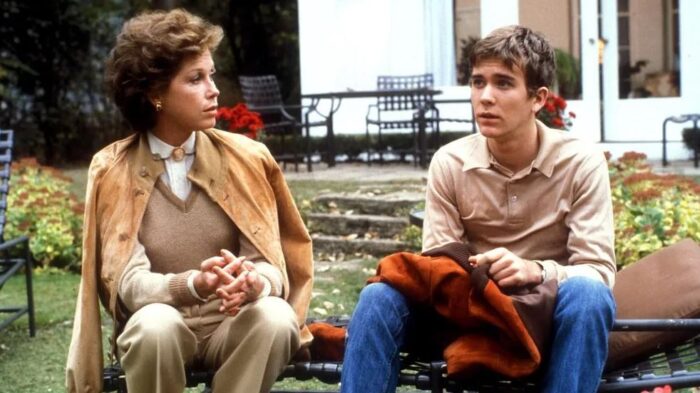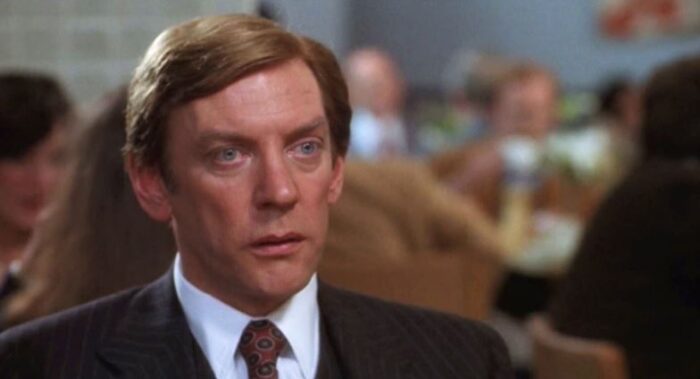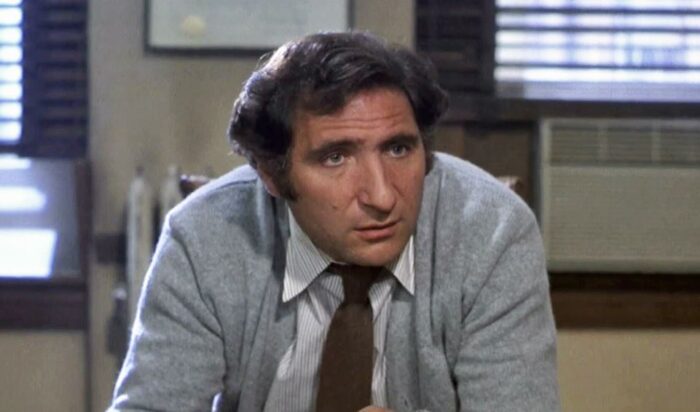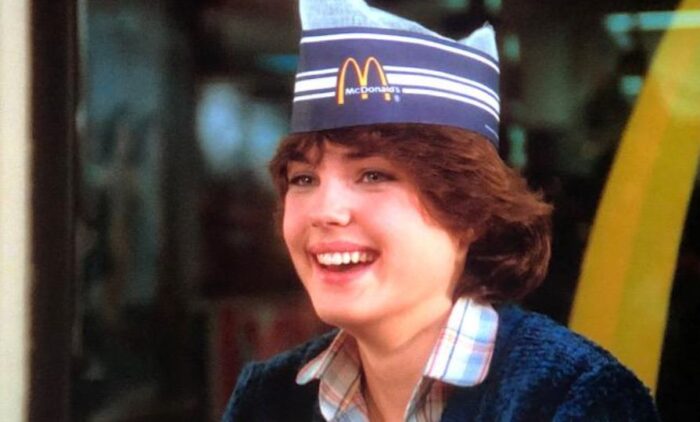
The 53rd Academy Awards (1981)
Nominations: 6
Wins: 4
Every year when we do our “Oscar’s Fortnight” or “March to Ten Wins,” or whatever we call it now, I find myself tiptoeing around the 1980s. In the five years we’ve done this segment, I’ve only reviewed one 1980s film: Dangerous Liaisons (still can’t spell that word). This isn’t an accident.
Why, then, do I avoid this decade like the Jarrett family in Ordinary People avoids sharing their trauma? The ‘80s were a boring decade for the Oscars. Don’t get me wrong, there were some cool nominees: Raiders of the Lost Ark, E.T., Raging Bull… But none of them won.
Instead, we got winners like Driving Miss Daisy, The Last Emperor, and Out of Africa, a film I had slotted until I chickened out because of its length and my fear of dying from boredom.
It’s funny because I grew up thinking the ‘80s were awesome. Back to the Future, Ghostbusters, Indiana Fucking Jones, all the stuff Stranger Things tells me to like. But as an adult, I wonder if films made for adults in the ‘80s were a backslide from the ‘70s. Quentin Tarantino talks about this in his 2022 book Cinema Speculation. Here’s a passage from his book:
“After growing up in the anything-goes seventies, the eighties marked a play-it-safe decade, like that other horrible decade for Hollywood movies, the fifties. But the eighties were even worse. In the fifties, you could claim that it was a repressed society that imposed restrictions on Hollywood, their movies, and their artists. But in the eighties, the restrictions Hollywood imposed on their own product were self-imposed. The harshest censorship is self-censorship. And it doesn’t always come from the big bad studio either. Many filmmakers watered down their own vision right from the beginning.”
Tarantino goes on to say, “After the seventies, film went back to the restraints of the fifties. Back to when controversial films had to be drained of life, changed, or turned into morality plays…” Tarantino raises good points about the “watering down” of mainstream ‘80s cinema and why I’ve avoided reviewing movies like Passage to India. Now, Tarantino does mark exceptions in the early ‘80s and other filmmakers who pushed against the norms (Verhoeven, Friedkin, De Palma), but he notes those artists were more often reprimanded than rewarded for their “transgressions.”
What does any of this have to do with Ordinary People? Not much. I needed to get that off my chest. Honestly, I found Ordinary People closer aligned with the downbeat films of the ‘70s. They did start filming in 1979, after all. Ordinary People gets a lot of flack for beating out one of the “cool” Best Picture nominees, Raging Bull, but the film is not without merit.
Directed by Robert Redford in his directorial debut, and adapted from Judith Guest’s 1976 book by Alvin Sargent (who I know best for his writing work on the Raimi Spider-Man films), Ordinary People is about an upper-class suburban Chicago family trying to rebuild their lives after the accidental death of one son and the attempted suicide of another.
Donald Sutherland and Mary Tyler Moore play the parents, Calvin and Beth Jarrett, and Timothy Hutton plays their son Conrad, suffering from PTSD after a failed suicide attempt and four months in a psychiatric hospital. There’s also Conrad’s blunt therapist, Sr. Tyrone C. Berger (played by Judd Hirsch), and Jeannine (Elizabeth McGovern), who Conrad dates after regaining some of his confidence.
I love a film that is hyper-focused on a small group of characters with no other underlying plot than, “How will these people learn to live together?” The film is smart enough to only hint at how their older son died for the majority of the film. We later learn it was a boating accident, but that’s not important. What’s important is how these people move on.
Beth is the quintessential narcissist; her response to her recent family tragedies is, “How do these events make me look to my peers?” An example is when she finds out her son Conrad has quit the swim team—not from him, but from a friend at the store. Her discovering this news that way is more devastating to her than Conrad quitting the swim team in the first place. She doesn’t want to look stupid. She cares about her status. Looking happy rather than being happy. I never would have thought Mary Tyler Moore had this kind of role in her, but she delivers and even earned a Best Actress Oscar nomination for herself.
Calvin is the peacemaker of the family but has no idea how to communicate with his wife or his son. He is reserved and hides his feelings out of fear that he’ll make the situation worse. It’s not until he also visits Dr. Berger that he learns how to express himself. It’s one of Donald Sutherland’s best roles, and it’s a travesty he wasn’t nominated for an Oscar.
One actor who not only secured a nomination but also a well-deserved win is Timothy Hutton. I’m actually not that familiar with him outside of knowing he won an Oscar at a young age (he was 20), but damn, what a talent. Conrad is sweet and understanding, but also fragile and lashes out frequently at his mother. It’s a delicate task to play someone suffering from PTSD without going too big or offending people who actually suffer from PTSD. My only note here is for the Academy, or the studio that ran the campaign: When I say this is not a Supporting Role, this is a Lead Role. It should win regardless, but at the end of the day, this is Timothy Hutton’s movie.
It’s also a delight to see Judd Hirsch (also Oscar nominated), an actor I usually associate with comedy, playing it straight. His frankness with Conrad in their sessions always brings a much-needed sense of catharsis to a movie that has the viewer walking on eggshells for almost the whole time. He’s not an overwritten character, he’s not flashy, he doesn’t monologue, he just listens and responds with brief but attentive answers.
I also want to give a shout-out to another one of the film’s beacons of levity: a very young Elizabeth McGovern (from Downton Abbey) as Calvin’s girlfriend. It’s a comfort to see Conrad happy in these scenes when he’s spiraling the rest of the time. They even go to an old-school McDonald’s. I’m lovin’ it.
The end is downbeat, but in a way that feels like these characters grew and overcame something. Bittersweet is the perfect word for it. A film that leaves you with something to ponder. I wonder if that’s why it won Best Picture?
Again, this film was the directorial debut of film icon Robert Redford. For such a big star to make something so sensitive and thought-provoking, I imagine it impressed a lot of people. Not only that, it’s linear, it’s simple, it’s relatable. Raging Bull must have been too stylish. It’s disorienting. It’s not for the faint of heart. Oscar voters, especially ‘80s Oscar voters, are the definition of “faint of heart.”
Did Redford also deserve Best Director? Not in my opinion, but it’s not an egregious win. Redford was an able hand for a solid script and solid performances. It’s a very good movie. Not a great movie. Very good. Which, honestly, as long as we’ve been doing this segment, is no guarantee. It feels good to cover an ‘80s movie that isn’t watered-down pabulum. Or worse, boring!




